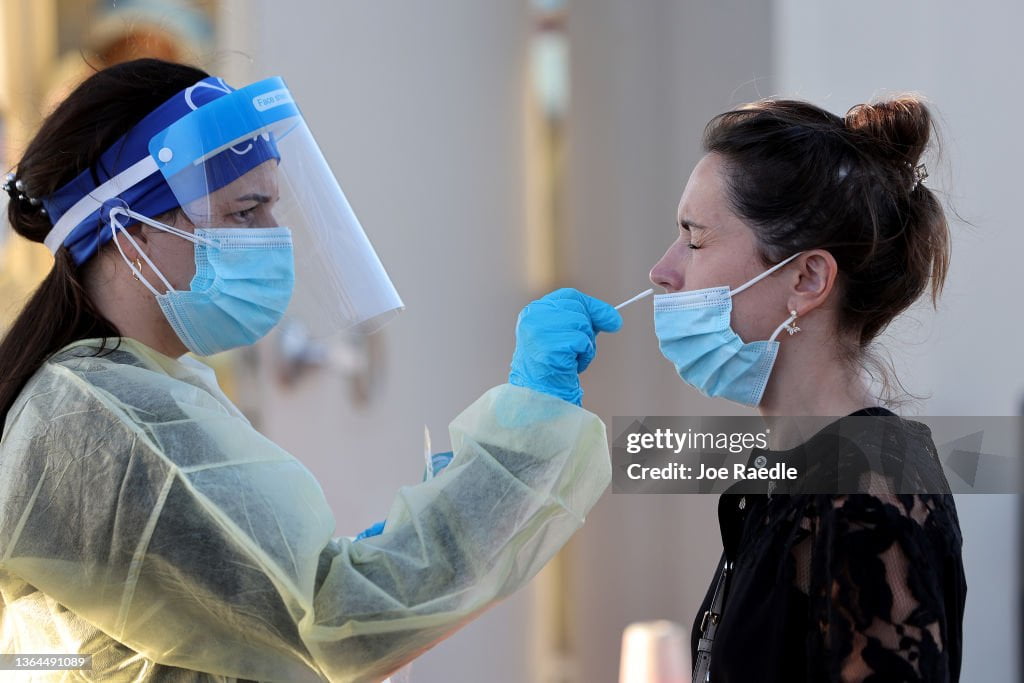This could be the least-known COVID sign
By
The New York Times
In January of 2020 the man who would later be known as the first COVID-19 sufferer within the United States arrived at an urgent care center.
The two symptoms such as a cough and fever, are among the symptoms which would be recognized as the recognizable signs of COVID. However, the patient also been suffering from nausea for two days and vomiting.
A lot of us think that COVID is related to respiratory problems. However, some people who become sick from the virus do not suffer from a sore throat or discomfort in their body, or coughing as claimed by the doctor Dr. Peter Chin-Hong, an infectious disease specialist at the University of California, San Francisco. Certain people may feel more like they’ve got food poisoning than any other.
It’s because coronavirus is “like throwing a bomb in your body,” said Ken Cadwell, a professor of medicine at the University of Pennsylvania who studies the way COVID impacts the stomach. “You’re going to feel that in multiple different organs, not just the lungs.”
With the number of COVID cases rising as well as the”FLiRT” or “FLiRT” variants fueling yet another summer-related outbreak Here’s how you can recognize and treat more obscure gastrointestinal signs.
Recognizing and Resolving Stomach Symptoms
For some, gastrointestinal symptoms can be felt in the initial days of an infection. They then begin to develop a cough and fever. However, many who have stomach-related symptoms “never think of it as COVID,” Chin-Hong stated.
Diarrrhea is a frequent COVID-related stomach symptom Chin-Hong stated. Patients may also lose appetite and feel vomiting, stomach discomfort, and vomiting.
COVID may not look like the same each time you are infected according to the Dr. Davey Smith, an infectious disease specialist at the University of California, San Diego. It is possible that you will experience symptoms of flu and cold in the course of one virus, and then experience digestive symptoms the following time. Paxlovid is an antiviral drug that lowers the chance of developing severe illness is also a cause of diarrhea.
Hydration is essential for those who suffers from COVID. However, drinking enough fluids is crucial when you’re experiencing vomiting or diarrhea. If you’re having difficulty keeping food down, limit yourself to simple foods such as toast and bananas, according to the Dr. Adrienna Jirik, a gastroenterologist at the Cleveland Clinic.
If you share a bathroom, you are able to take measures to prevent getting the bathroom contaminated with harmful particles that are in the waste, such as opening a window to increase the airflow.
More on COVID-19
- This is possibly the most frequently ignored COVID symptom
- If you are diagnosed with COVID, can you travel?
- FLiRT, and LB.1 variations driving COVID summer growth
- It’s not a figment of your fantasies: Some people are experiencing COVID once more
- Seattle’s COVID summer surge is here. What should you be aware of
- A different COVID vaccine? Absolutely, here’s the reason why.
- Your 2024-specific resource for COVID symptoms, treatment and prevention
- Our list of COVID-19 related stories
A Refresher on Other COVID Symptoms
The most prevalent strains that are currently in circulation have the potential to trigger similar symptoms as those we’ve seen in other viruses.
Alongside digestive discomfort the majority of people experience an irritable throat and congestion, or a swollen nose, headache and muscle pains and chills, fever or a cough, fatigue and fatigue. In extreme instances, they may be unable to breath. When people who are sick experience loss of smell or taste the symptom is more rare as it was during the outbreak.
All of these signs can be present for days following a time with a person who has the virus. If you suspect you’ve been infected, it’s essential to watch out for any symptoms such as gastrointestinal symptoms Chin-Hong added.
“If everybody in your house has COVID and you have diarrhea, then you have to put two and two together,” the doctor said.
